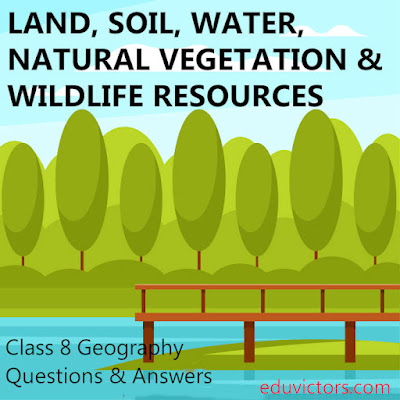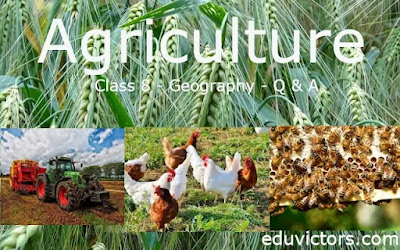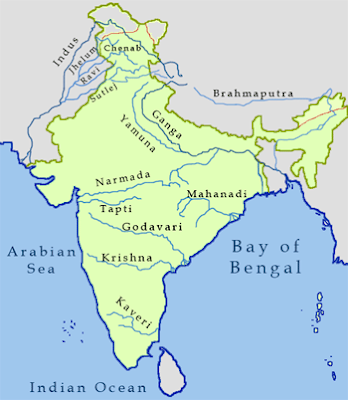CBSE Class 8 - Geography - LAND, SOIL, WATER, NATURAL VEGETATION AND WILDLIFE RESOURCES (Q & A)
Q1. Enlist the major factors leading to a shortage of fresh water supply.
Answer: Increasing population, rising demands for food and cash crops, increasing urbanization and rising standards of living are the major factors leading to a shortage in supply of freshwater either due to drying up of water sources or water pollution.




















